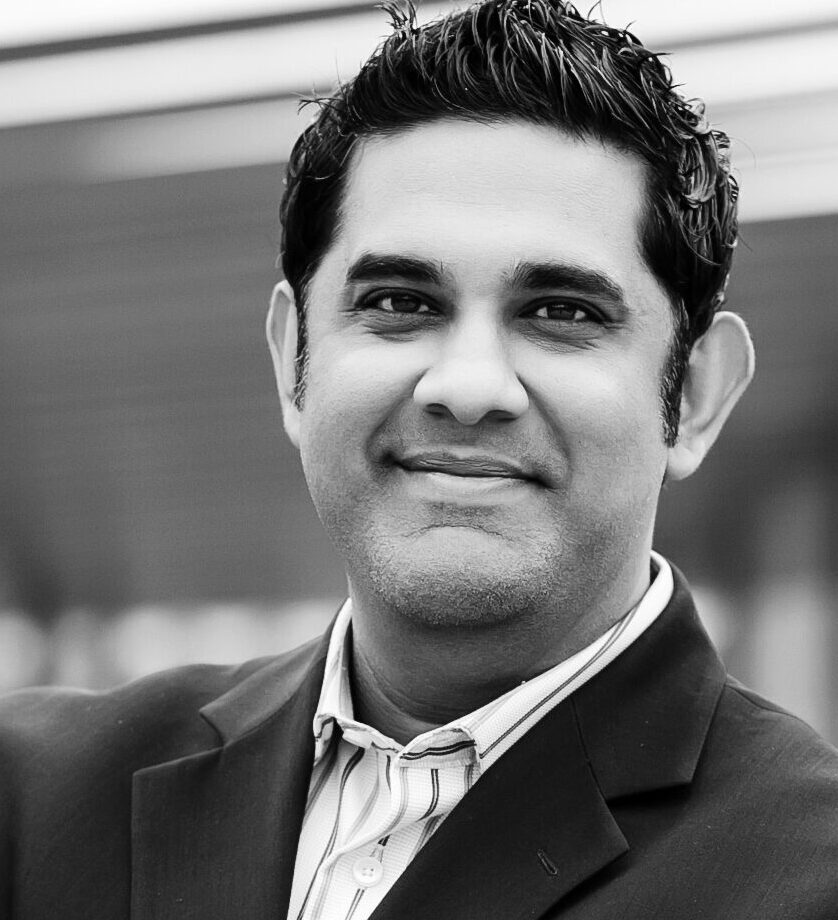Elevating Design: A Call to Action to Evaluate Our Approach to Design and Architecture
By: Haril Pandya
Two simple words, but what does it really mean to “elevate” design? NELSON National Practice Leader and architect Haril Pandya, FAIA shares his thoughts about how the answer lies in collaboration.
Why is great design so critical? And for that matter, what is “great design”? Who determines if the design is great? Is there a jury? Is it just simply public opinion? Is it how many awards are on your shelf?
We have been taught ever since design or architecture school that design needs to be excellent. We judge “excellent” in comparison to something else. So, if there’s excellent design, then it stands to reason that there must be bad design. Right?
It goes without saying that architecture and design is a blend of art and science. And yes, both of these components can be elevated. Think about what we knew in science 50 years ago versus today. What about forms of art or media today versus 50 years ago? They’ve both evolved, and one can even say they’ve been “elevated.”
This is NOT a public service announcement, but a call to action.
Whether you are a recent graduate fresh out of design school, or you’ve been practicing for 35 years or more, every project we take on – no matter how small or big – the solution is rooted in design. That is fundamental. It’s what our clients seek us out for, it’s what we are known for, and it’s the core of our mission and our purpose.
Design can be an egocentric profession at times because design is personal and therefore subjective, despite the fact that its outcome is for the masses – a contradiction in terms in many ways. So how do we take something that’s so personal to us and at the same time be critical enough to give it the perspective it deserves, to make sure the solution is the best one?
Now more than ever, it’s critical to combine our experiences, our expertise, and our life stories to produce the best possible outcome. Whether you’re an architect or designer, an accountant or a manager, we are also moms, dads, artists, musicians, sculptors, photographers, writers, chefs, athletes, and more. These life experiences, when combined with our professional experiences, are what allow us as professionals to generate the best solutions.
So why work together? As individuals, we can be critical or compassionate, opinionated, or constructive, egotistic or educative. The design profession is an apprentice-based field where experience is handed down from the more senior to the more junior, year over year, project over project. So how do we assemble all of that knowledge, whether it’s fresh and new and rooted in innovation or gleaned from lessons learned over decades in multiple project types and places? Selfless collaboration.
Whether the goal is to amass as many design awards as possible, or earn your license, become a fellow, contribute to a social cause like diversity, or advocate for the licensure of interior designers, they are only achieved if our sense of design and our ability to be self-critical is elevated. I am fortunate enough to be in a firm with incredible minds, incredible talent, incredible experience, and incredible diversity – with leadership playing a key role in mentorship.
Elevating design is not a box we check. It’s about how we challenge our beliefs – our fundamental perception of design – and implement it to show our clients that something can more beautiful or can function better without costing more. It’s how we convince our clients that doing something strategically valuable today will help their ROI in the long run, but it begins with convincing ourselves that design is critical and that we are critical to design.
As One NELSON, we are a giant force of creativity, ingenuity, innovation, and critical thinking. We collaborate across our various and diverse practice areas to get opinions and to challenge ourselves and others. There will always be a budget, and there will always going to be deadlines or other constraints. But that doesn’t stop the greatest architects and designers in the world from creating tremendous and beautiful solutions.
We have all of the tools we need to elevate design in our brains. The brain allows empathy, compassion, curiosity, and the by-products are innovation, creativity, strategy, and beautiful design. I challenge everyone reading this column to reach out and find two or three people you work with regularly and two or three you don’t normally collaborate with and ask, “Can I have your opinion on something? Do you mind looking at this for a minute and giving me your thoughts?” In that moment, design has instantly become elevated.
The most beautiful, or functional, objects we see and use every day are not created by a single person. There is a team of experts that possess a wide variety of experiences that each play an important role. Artists can sign the bottom of their paintings, and architects can be memorialized on plaques, but without a team of people those outcomes do not happen. So reach out, challenge your design thinking, challenge the way you’ve been looking at a project for weeks. We are all here to help each other elevate design.

Haril Pandya, FAIA LEED AP Sr. VP/Managing Director, Boston National Practice Leader, Asset Strategy
Haril serves as Senior Vice President of NELSON Worldwide’s Boston office. A multi-disciplinary and award-winning national architectural firm, NELSON has over 700 employees and 20 offices in key markets throughout the country. As the National Design Leader for Architecture and a National Practice Leader, Haril thrives on partnering with clients (building owners, developers, brokers, and tenants) providing INSIGHT, EXPERTISE, and DESIGN EXCELLENCE in Building Repositioning/Adaptive Re-Use/Highest and Best use, Value Add, Mixed-Use High/Mid/Low Rise, Residential, Office, Lab/Life Science, Workplace, Retail, Hospitality, Office, Urban/Master Planning and Branding Strategies on a local, regional, and national scale.